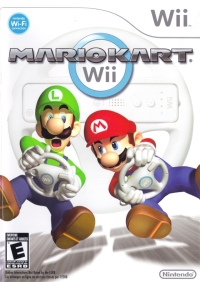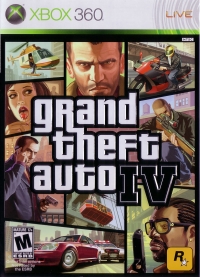This article is from the first edition of The Video Game Librarian website I published between 2008 and 2010. It was originally written on May 8, 2008.
The Federal Trade Commission has released the 2008 update to their undercover shopper study and found that retailers enforce the ESRB ratings more than any other medium.
The report (which can be found here) shows that underage shoppers were able to purchase Mature-rated games only 20% of the time. This is less than half the number of underage shoppers who were able to buy M-rated games in 2006 (42%).
This is a better enforcement rate than any of the other mediums, including R-rated movie tickets (35%), R-rated DVDs (47%), unrated DVDs (51%) and CDs with Paternal Advisory stickers (54%).
The report further breaks the numbers down by store. Among video game retailers, GameStop has the best enforcement rate (6%), while Hollywood Video has the worst (40%)
It’s great to see stores enforcing the ESRB ratings (it makes the “Won’t someone think of the children!” screaming of parental groups look all the more silly), but it may be worrisome for libraries. Many libraries make parents police what is on their child’s account. If parents come to assume that stores will keep Mature-rated games away from their children, they may expect the same from libraries. And that could lead to the awkward conversation where the parent wants to know why their child was “allowed” to borrow the latest blood-and-guts shooter from the library.
The solution (which many libraries practice) is to not carry Mature-rated games. But this is also problematic as it denies adults access to many great games. It also puts games on a different plane from books and movies (which feature themes and scenes on par with any Mature-rated title).
The key, of course, is education. And educating parents on the ESRB rating scale is the first step.
 Mario Kart Wii was released a little over three weeks ago and I haven’t been playing a single other game since. So here’s a few thoughts I’ve had about the game, which is now available for the Wii…
Mario Kart Wii was released a little over three weeks ago and I haven’t been playing a single other game since. So here’s a few thoughts I’ve had about the game, which is now available for the Wii…
 Is all the Grand Theft Auto IV information that’s swirling around the Internet a little overwhelming? Probably so, but if you’re planning to add the game to your collection, it helps to be prepared!
Is all the Grand Theft Auto IV information that’s swirling around the Internet a little overwhelming? Probably so, but if you’re planning to add the game to your collection, it helps to be prepared!